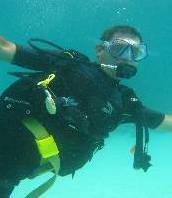| Pages in topic: < [1 2 3 4 5] > | Is it possible for an adult to learn a new language perfectly? Thread poster: Balasubramaniam L.
|
|---|
| Annual report | Oct 31, 2006 |
Jackie Bowman wrote:
If you’re translating a company’s annual report, or its marketing brochure, you might (might) be able to get away with a ‘good’ knowledge of the source and target languages. But if you’re translating a trade treaty among twelve countries whose people speak three different languages, then even ‘excellent’ is not good enough.
Jackie, as a translator of financial reports, many multinationals have operations in many more than just twelve countries and turnover much higher than the GDP of many countries. A mistake in a financial report could have disastrous effects.
Jim (very hurt feelings ) )
| | | | Balasubramaniam L. 
India
Local time: 20:01
Member (2006)
English to Hindi
+ ...
TOPIC STARTER SITE LOCALIZER | A very acceptable definition | Oct 31, 2006 |
Michele Fauble wrote:
My definition from an earlier thread.
Every human being is born with the ability to acquire the language spoken by the community in which he/she is born and raised. At around the age of 13-14 this natural ability to acquire a language begins to function at a less than optimal level, and any language acquired after this age is unlikely to be learned to a native speaker level in all aspects.
For a person to be considered a native speaker of a language, he/she must have learned it at a young age and as a member of a community of native speakers. This may be the family, the wider community in which he/she lives, or both.
Dear Michele,
The only reason I wanted to bring in the definition of native language to this thread is that this thread is actually a continuation of the discussion going on in several separate threads on the issue of native language.
Your above definition of native language is certainly better than the one I had proposed, and should guide us in the further discussions on this thread.
The point I would like to make, or rather, the question that I would like to ask, for I too want to understand this better, is that, what if the child is exposed to more than one speech community during its childhood?
I am particularly interested to know because this routinely happens in India, with children being exposed to their mother tongue, English and Hindi and sometimes also the local language, if the local language is different from the mother tongue.
Do all these languages then become the native language of the child?
Is there any limit to the number of native languages a person can have?
Is it always that a person can have only one native language?
[Edited at 2006-10-31 06:22]
| | | | Balasubramaniam L. 
India
Local time: 20:01
Member (2006)
English to Hindi
+ ...
TOPIC STARTER SITE LOCALIZER | Michele Fauble 
United States
Local time: 07:31
Member (2006)
Norwegian to English
+ ...
| More than one native language | Oct 31, 2006 |
Balasubramaniam wrote:
The point I would like to make, or rather, the question that I would like to ask, for I too want to understand this better, is that, what if the child is exposed to more than one speech community during its childhood?
I am particularly interested to know because this routinely happens in India, with children being exposed to their mother tongue, English and Hindi and sometimes also the local language, if the local language is different from the mother tongue.
Do all these languages then become the native language of the child?
Is there any limit to the number of native languages a person can have?
Is it always that a person can have only one native language?
A person can have more than one native language if that person has learned more than one language at a young age and as a member of communities with different languages. One community of speakers could be the family, and the other community could be the population among whom one lives (village, region, etc.). These two communities could have different languages.
A person can also be exposed from a young age to a language without being a member of a community of native speakers of that language. If the exposure is optimal for language acquisition, the individual may achieve near-native, or even native-equivalent competence.
| | |
|
|
|
| James. Please be unhurt … | Nov 1, 2006 |
Jim D had this to say:
Jackie, as a translator of financial reports, many multinationals have operations in many more than just twelve countries and turnover much higher than the GDP of many countries. A mistake in a financial report could have disastrous effects. Jim (very hurt feelings  )
I don’t doubt for a second that many MNCs are richer than Nicaragua. I withdraw the comment. It was thoughtlessly impolitic.
I’d meant to obviate challenges by the repetition of ‘might’. What I meant to say was … ‘if you’re localizing video games, or translating DVD operating instructions …’.
OK. Now. Video game guys? And DVD manual translators? Let’s rumble …
| | | | | This is all semi-interesting in some vaguely abstract way ... | Nov 1, 2006 |
I have been tested, in depth, by the European Commission, the World Bank and the United Nations. Neither they nor I could determine my mother tongue. I could have saved everybody a lot of time by telling them that my mother was most comfortable in Czech. My own understanding of Czech is beyond miserable.
I write best in English. I have been tested in Spanish. The results were pretty good. Sometimes I take my talent to the market as a translator from Spanish to English.
... See more I have been tested, in depth, by the European Commission, the World Bank and the United Nations. Neither they nor I could determine my mother tongue. I could have saved everybody a lot of time by telling them that my mother was most comfortable in Czech. My own understanding of Czech is beyond miserable.
I write best in English. I have been tested in Spanish. The results were pretty good. Sometimes I take my talent to the market as a translator from Spanish to English.
If you are a professional writer of a language, the whole ‘native language’ issue is a matter of supreme irrelevance. If you sell your services as a translator from one language to another, you can claim to be native in anything you choose.
If you claim to be native in English, as a professional translator, and you’re not, I will catch you in a heartbeat. I will catch bad English by native English speakers, of course, but the prospects are bright that they are not selling their services as professional writers of English.
Many people have contributed to this single thread. If I were in the business of hiring good writers of English prose, I would hire some of them in a second. Others, I would file under ‘very poor sense of publishable English’.
What matters is your talent (not your skill; skill is something you learn) in writing the language into which you propose to translate. Everything else is academic. And tedious to discuss. ▲ Collapse
| | | | MariusV 
Lithuania
Local time: 17:31
English to Lithuanian
+ ...
First, I think, all depends on that "adult"
Second, depends what is the definition of "perfect"
| | | | | Off topic: @Jackie, invitation to participate in the Spanish forum | Nov 2, 2006 |
Jackie Bowman wrote:
I write best in English. I have been tested in Spanish. The results were pretty good. Sometimes I take my talent to the market as a translator from Spanish to English.
That you write best in English is definitely obvious
But why not join every now and then the Spanish forum, since you are a Spanish to English translator?
Just like some of us, Spanish "native" speakers, struggle with the English language in order to participate in the English-only forums, it would be just as interesting that some of the English "native" speakers also did it the other way around.
Just a thought...
Saludos,
Ivette
PS: just edited to add a missing comma after "Spanish 'native' speakers".... phew...
[Edited at 2006-11-02 18:15]
| | |
|
|
|
Balasubramaniam L. 
India
Local time: 20:01
Member (2006)
English to Hindi
+ ...
TOPIC STARTER SITE LOCALIZER | At what age were you first exposed to these langauges? | Nov 2, 2006 |
Jackie Bowman wrote:
I write best in English. I have been tested in Spanish. The results were pretty good. Sometimes I take my talent to the market as a translator from Spanish to English.
For the purpose of this thread it will be interesting if you could reveal at what age in your life you first came in contact with these languages.
You say Czech is your mother tongue. This means you learnt English and Spanish later in your life. How much later?
[Edited at 2006-11-02 15:52]
| | | | Balasubramaniam L. 
India
Local time: 20:01
Member (2006)
English to Hindi
+ ...
TOPIC STARTER SITE LOCALIZER | Recapitulation | Nov 2, 2006 |
When a thread has run to four pages and is several days old, there is justification for presenting a quick recapitulation of the main points, in order to keep the discussion alive, for I believe that there is still much to be said on this topic.
First, there seems to be agreement that language learning is the domain of children, rather than adults, and the younger you are, the better you are in this activity.
Second, there is disagreement regarding the extent of the lan... See more When a thread has run to four pages and is several days old, there is justification for presenting a quick recapitulation of the main points, in order to keep the discussion alive, for I believe that there is still much to be said on this topic.
First, there seems to be agreement that language learning is the domain of children, rather than adults, and the younger you are, the better you are in this activity.
Second, there is disagreement regarding the extent of the language learning phase in human beings.
As one of the thread posters (Emmanuelle Baeumler) has pointed out, it could even start before birth itself. The hearing ability of a human being is at its peak at about 5 months of pregnancy, according to E.B. If this is correct, in all probability, the language learning process starts then itself. We can hear the rumbling sounds made by our tummies, and even those of the person sitting near us, if it is loud enough! So the reverse too must be true, outside sounds should be able to penetrate into the womb and fall on the child’s ears. Most probably it learns to distinguish between human speech and other non-human sounds such as the barking of dogs, the honking of cars, etc. even while it is in the womb. This is a great intellectual leap for the embryonic human being to achieve. The entire language learning process of later years is based on this single achievement, the ability to sift human speech sounds from background noise.
The upper age limit for learning languages too seems unclear. Linguists seem to be of the opinion that it is around puberty, but also say that the language learning ability does not go off all at once, but gradually decreases. This seems to be confirmed by the experience of CMJ_Trans, who has reported that he was able to learn a new language at around 25 years of age, after which language learning became difficult for him.
While most people agree that learning a language at any age is possible, they also concur that this applies only to writing skills in the language, spoken language is never learned properly beyond puberty, and there seems to be no dissenting view on this. But the proficiency acquired when a language is learned as an adult is never comparable to what would have been possible if the same language had been learned in early childhood.
So that in short is the summary of the discussion so far.
[Edited at 2006-11-03 03:59] ▲ Collapse
| | | | Balasubramaniam L. 
India
Local time: 20:01
Member (2006)
English to Hindi
+ ...
TOPIC STARTER SITE LOCALIZER | Now the unanswered questions: | Nov 2, 2006 |
How long does it take for a child to learn a language in ideal situations?
It appears, about five years. For at around that age it learns to speak the language fluently. But in reality the language learning process continues throughout life, building relentlessly on the solid foundation of childhood achievement. If this is not done, the child runs the danger of losing its command over the first language it was exposed to. Jackie's Czech seems to be a case in point.
The ... See more How long does it take for a child to learn a language in ideal situations?
It appears, about five years. For at around that age it learns to speak the language fluently. But in reality the language learning process continues throughout life, building relentlessly on the solid foundation of childhood achievement. If this is not done, the child runs the danger of losing its command over the first language it was exposed to. Jackie's Czech seems to be a case in point.
The second unanswered question is regarding bi(multi)lingualism, where a child is exposed to not one but two or more languages and it learns all of them. Is the proficiency acquired in all these languages equivalent, or is there always one dominant language in which the child has most proficiency, and what are the factors that determine which of the several languages to which a child has been exposed becomes the dominant language?
The third question that seeks an answer is, is the proficiency acquired in a language by a bilingual child at par with the proficiency acquired in the same language by a monolingual child? In other words, does the situation of bilingualism in some way decrease or affect the proficiency acquired in both the languages when compared to the proficiency of monolingualists in these two languages?
Any answers?
[Edited at 2006-11-02 16:06] ▲ Collapse
| | | | Maria Karra 
United States
Local time: 10:31
Member (2000)
Greek to English
+ ...
Balasubramaniam wrote:
First, there seems to be agreement that language learning is the domain of children, rather than adults, and the younger you are, the better you are in this activity.
This is incorrect. The younger you are, the easier it is to attain native-like pronunciation. However, research shows that older children learn faster than younger children, especially when it comes to grammar and syntax. I'm just pointing out that we need to make a disctinction between language proficiency and learning speed; to say that younger children are "better" at language learning is inaccurate and a little too general.
Maria
| | |
|
|
|
Balasubramaniam L. 
India
Local time: 20:01
Member (2006)
English to Hindi
+ ...
TOPIC STARTER SITE LOCALIZER | The distinction I was making was between children and adults | Nov 2, 2006 |
Maria Karra wrote: Balasubramaniam wrote:
First, there seems to be agreement that language learning is the domain of children, rather than adults, and the younger you are, the better you are in this activity.
This is incorrect. The younger you are, the easier it is to attain native-like pronunciation. However, research shows that older children learn faster than younger children, especially when it comes to grammar and syntax. I'm just pointing out that we need to make a disctinction between language proficiency and learning speed; to say that younger children are "better" at language learning is inaccurate and a little too general. Maria
The distinction I was making was between the language learning abilities of children (or people in the language learning phase of life) visvis those of adults (who have crossed this phase).
Not between children of different ages. From your post it appears that there is difference in the language learning abilities of even children of different ages.
What a complex topic this is!
| | | | Michele Fauble 
United States
Local time: 07:31
Member (2006)
Norwegian to English
+ ...
| Do older children learn faster than younger children? | Nov 2, 2006 |
Maria Karra wrote:
... research shows that older children learn faster than younger children, especially when it comes to grammar and syntax.
Maria
Is there research showing that older children learn faster than younger children under natural language acquisition conditions? Would a 9-year-old child learn faster than a 6-year-old child if they were both just placed in a new language environment without explicit instruction in the new language? The research I have seen found age-related differences among children who were being taught languages in classroom settings, i.e. through explicit instruction.
[Edited at 2006-11-02 18:33]
| | | | | Answering Balasubramaniam ... | Nov 2, 2006 |
I’m not sure how interesting this can be to anyone, but to answer a question …
Balasubramaniam wrote: Jackie Bowman wrote:
I write best in English. I have been tested in Spanish. The results were pretty good. Sometimes I take my talent to the market as a translator from Spanish to English.
For the purpose of this thread it will be interesting if you could reveal at what age in your life you first came in contact with these languages. You say Czech is your mother tongue. This means you learnt English and Spanish later in your life. How much later? [Edited at 2006-11-02 15:52]
I said that my mother was most comfortable speaking Czech. Personally, I can just about ask for a cup of tea in Czech. And the prospects are bright that I’ll get it wrong and they’ll bring me a cup of coffee. I was exposed to English on the day I came out of the womb. My memories of that event, sadly, are very vague. But I assume that my dad (who only ever spoke English to me) was a bit excited and said a few words to me.
I started learning Spanish in school at the age of eleven. Later in life, I spent quite a long time living in Spain and Central America.
Hope this helps.
All best,
JB
| | | | | Pages in topic: < [1 2 3 4 5] > | To report site rules violations or get help, contact a site moderator: You can also contact site staff by submitting a support request » Is it possible for an adult to learn a new language perfectly? | CafeTran Espresso | You've never met a CAT tool this clever!
Translate faster & easier, using a sophisticated CAT tool built by a translator / developer.
Accept jobs from clients who use Trados, MemoQ, Wordfast & major CAT tools.
Download and start using CafeTran Espresso -- for free
Buy now! » |
| | Protemos translation business management system | Create your account in minutes, and start working! 3-month trial for agencies, and free for freelancers!
The system lets you keep client/vendor database, with contacts and rates, manage projects and assign jobs to vendors, issue invoices, track payments, store and manage project files, generate business reports on turnover profit per client/manager etc.
More info » |
|
| | | | X Sign in to your ProZ.com account... | | | | | |










